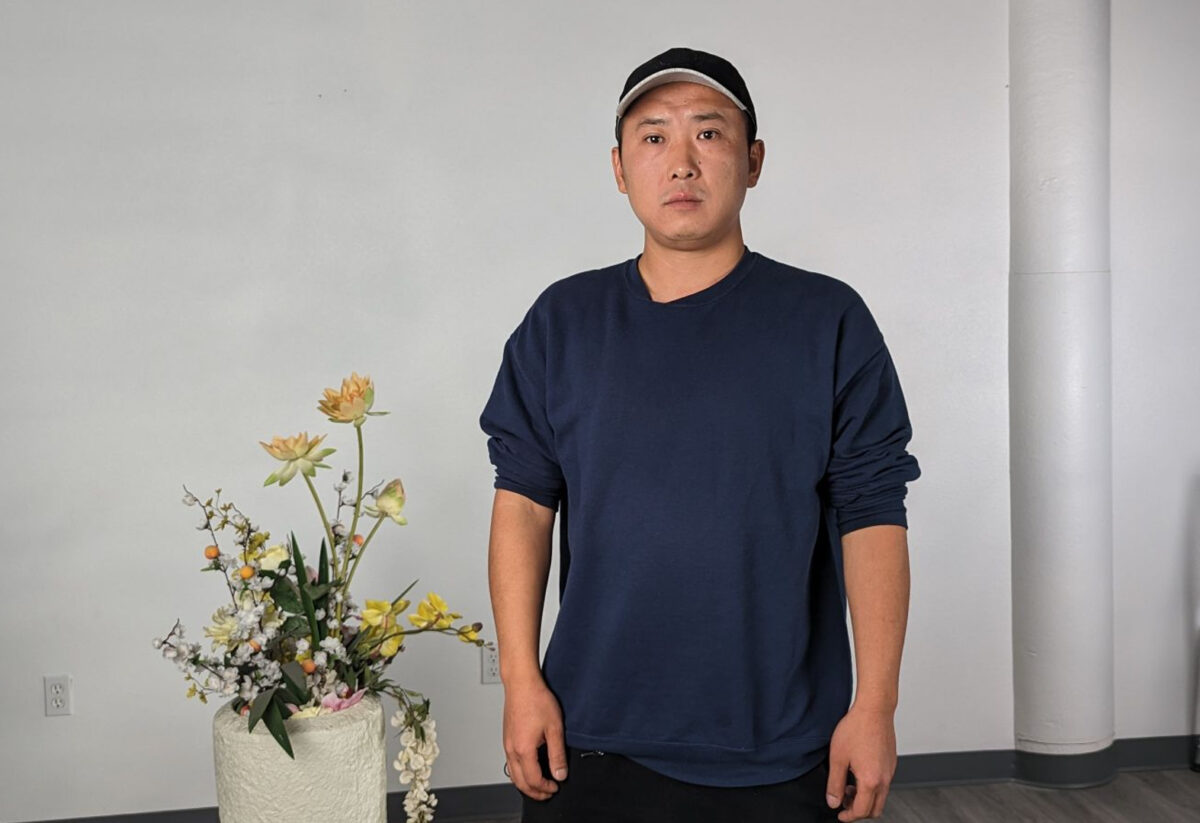At just 5 years old, Hu Yang was too young in 1989 to be part of the pro-democracy movement in Tiananmen Square that would later be violently crushed by the Chinese Communist Party (CCP) using tanks and guns. But that hasn’t stopped him from trying to keep its memory alive.
On June 2, 2022, in front of a local government building in his hometown, the historic northwestern city of Xi’an, Hu held up a placard reading “Don’t forget June 4, put an end to authoritarian rule.”
Hu’s wife was there to photograph the protest. Through a friend based outside of China, Hu then posted the image on Twitter, which is banned in China. Hu was hoping to represent pro-democracy voices from inside the country, which he found painfully lacking as a wave of events began around the world mourning the bloodshed on its anniversary.
What he was not expecting was that this would change his life forever.
Hu had been careful not to leave identifying information on the photo. He covered his face and used a photo-editing tool to remove the name of the specific district on the building plaques. Nevertheless, the Chinese police tracked him down.
A few hours after the photo was posted online, the light went off unexpectedly in Hu’s apartment. Venturing out the door to check on the issue, Hu was stunned to see more than a dozen people waiting outside. One man pinned Hu down while pressing a gun to his waist. The others rushed into the apartment.
“That man in the photo—is that you?” another asked Hu, holding a copy of the photo Hu had posted to Twitter.
A “yes” from Hu was all that was needed for those men to begin ransacking his apartment. Hu’s 7-year-old son, unsure of what was going on, started to cry.
The men, who never identified themselves, handcuffed and interrogated Hu overnight before detaining him in a detention facility that had been converted from a hotel. There, he received constant threats and was forced to sign two documents acknowledging guilt for “disrupting social order” and “picking quarrels and provoking trouble”—both of these vague charges are commonly used by Beijing to silence dissent.
Even after being freed on bail, Hu had to report his activities to the local police. Another incident like this could get him charged with the more serious offense of “subversion of state power,” which has a maximum penalty of life in prison, the police warned.
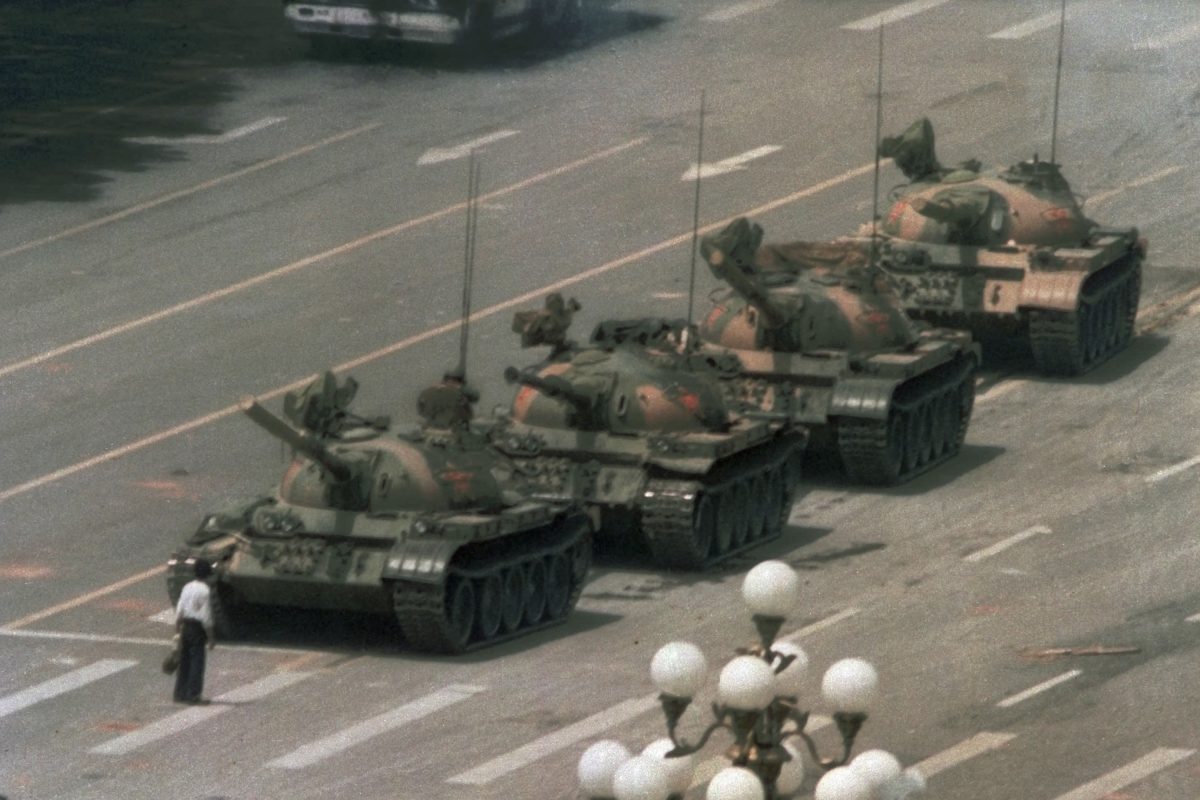
Hushed Memories
Exactly one year after that police raid, on the eve of another June 4 anniversary, Hu is in California to tell his story, now in exile from the communist-ruled country he has lost faith in.
He spoke of the many sleepless nights, haunted by nightmares where police would hood and take him away in front of his crying children. He’s taken to using sleeping pills to get through the night.
Disillusioned with the regime and seeing no future for him in China, Hu, along with his wife and two children, embarked on a 50-day harrowing journey to escape the country through Latin America. His escape from China was not unlike what many Tiananmen protesters had to go through more than 30 years ago when the regime started hunting down those involved in the movement.
On the road, Hu and his wife had briefly lost track of their son while trekking through thick rainforests and sat through stormy waves on a speedboat that lacked basic protective devices.
He feels lucky to have made it out despite the many perils he suffered, noting that as the anniversary approached, Chinese authorities have harassed, threatened, or detained a number of prominent dissidents inside the country to ensure nothing would happen to mark the occasion.
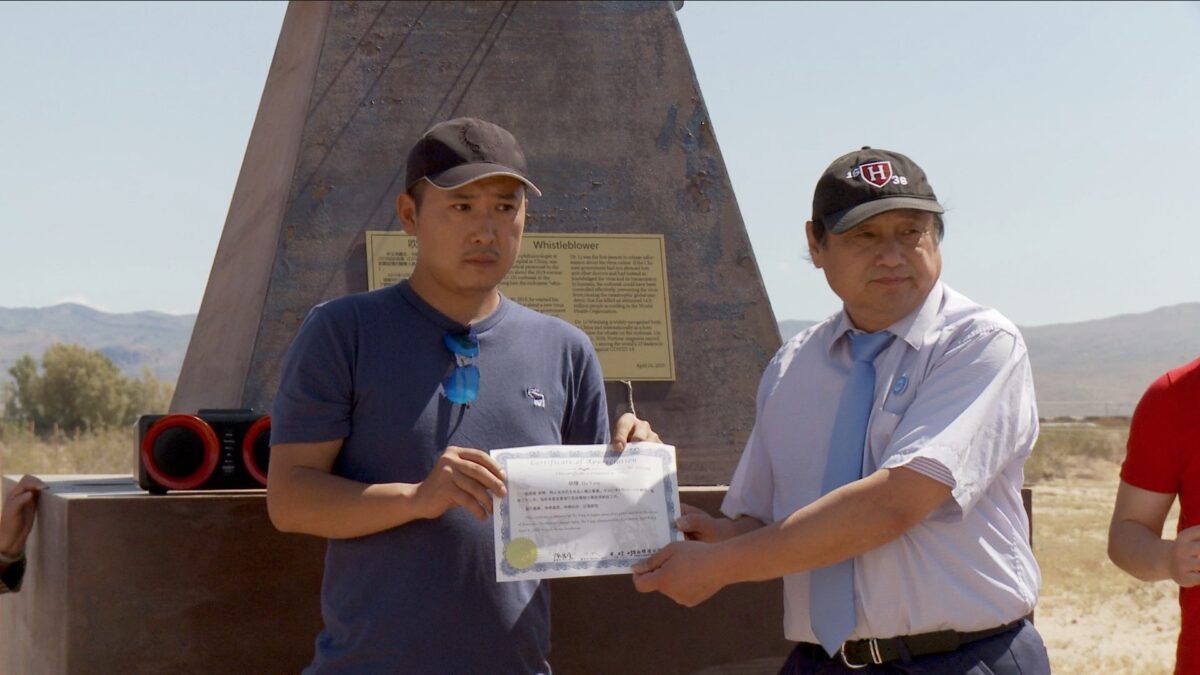
“The Communist Party has always wanted to erase this part of history so that it can go on to deceive people. That’s why it’s all the more important to remember,” Hu told The Epoch Times.
The Tiananmen bloodshed remains one of the most censored words in China, along with other hot-button topics such as the persecution of the faith group Falun Gong, analysts have found. As early as 2018, WeChat, one of the most used social media apps in China, already had algorithms to filter images containing blacklisted words or those that look visually similar to what the regime prohibits, according to a Citizen Lab report.
“You can see nothing in mainland China, not a word about the incident at all,” said Hu.
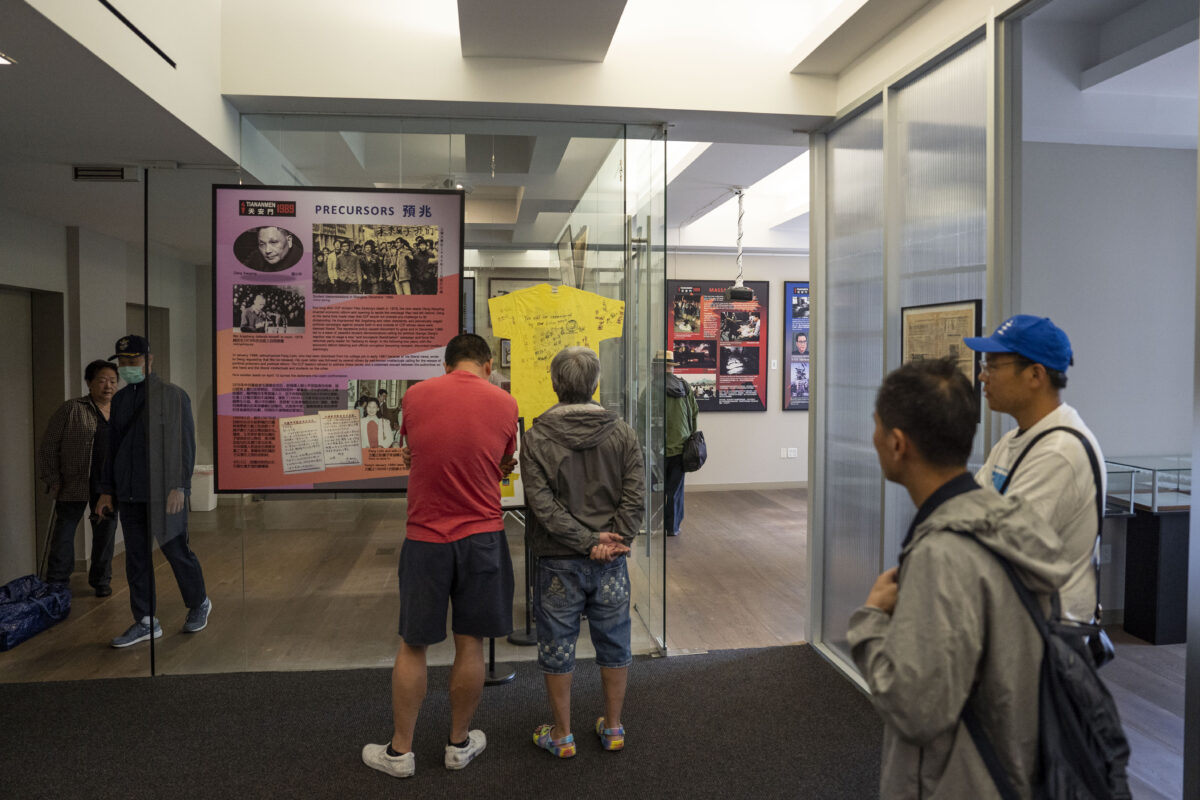
A Defiant Spirit Lives on
But if the regime aims to have people forget, there are communities out there determined it won’t get its way.
On the other side of the United States on June 2, the June Fourth Memorial Exhibit opened in New York City.
Situated in a cramped office space on the Sixth Ave in Manhattan, it marks the world’s only permanent exhibition dedicated to the Tiananmen demonstrations after a similar museum in Hong Kong shuttered under authorities’ pressure. The address of the venue, 894 6th Avenue, coincidentally, matches the date of the incident.
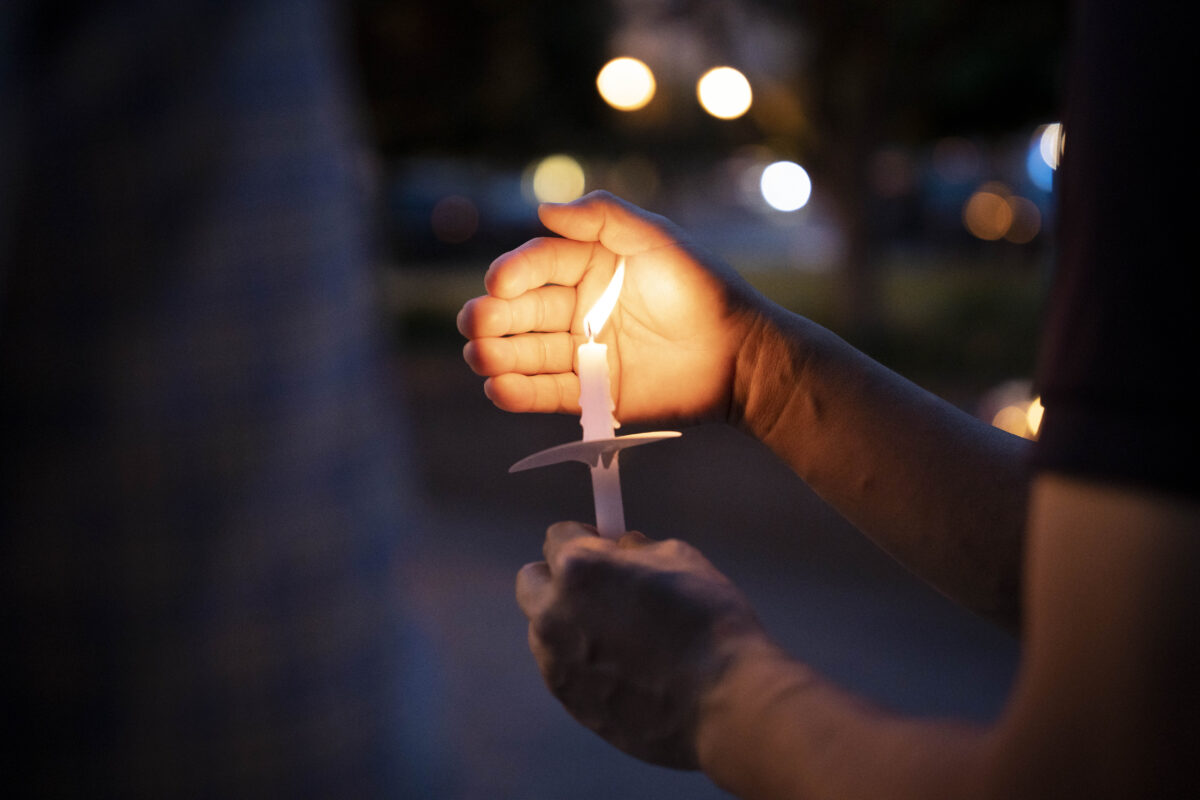
“It’s a symbol of defiance,” said the exhibit’s executive director David Yu, adding that he hopes the venue can help people in the country distinguish China and the ruling communist regime.
“Many Americans would immediately associate Chinese people with the communist party,” he told The Epoch Times. “But by having this June Fourth Memorial Exhibit here, they may ask about it and realize that’s not true. These are Chinese people, but they oppose the communist totalitarianism. They are the freedom fighters.”
The exhibit features many items preserved from those times, including photos, a bloodstained shirt from a Chinese reporter who was beaten by armed police while trying to cover the suppression, and a tent donated from Hong Kong that housed the pro-democracy students during their last few days on Tiananmen Square.
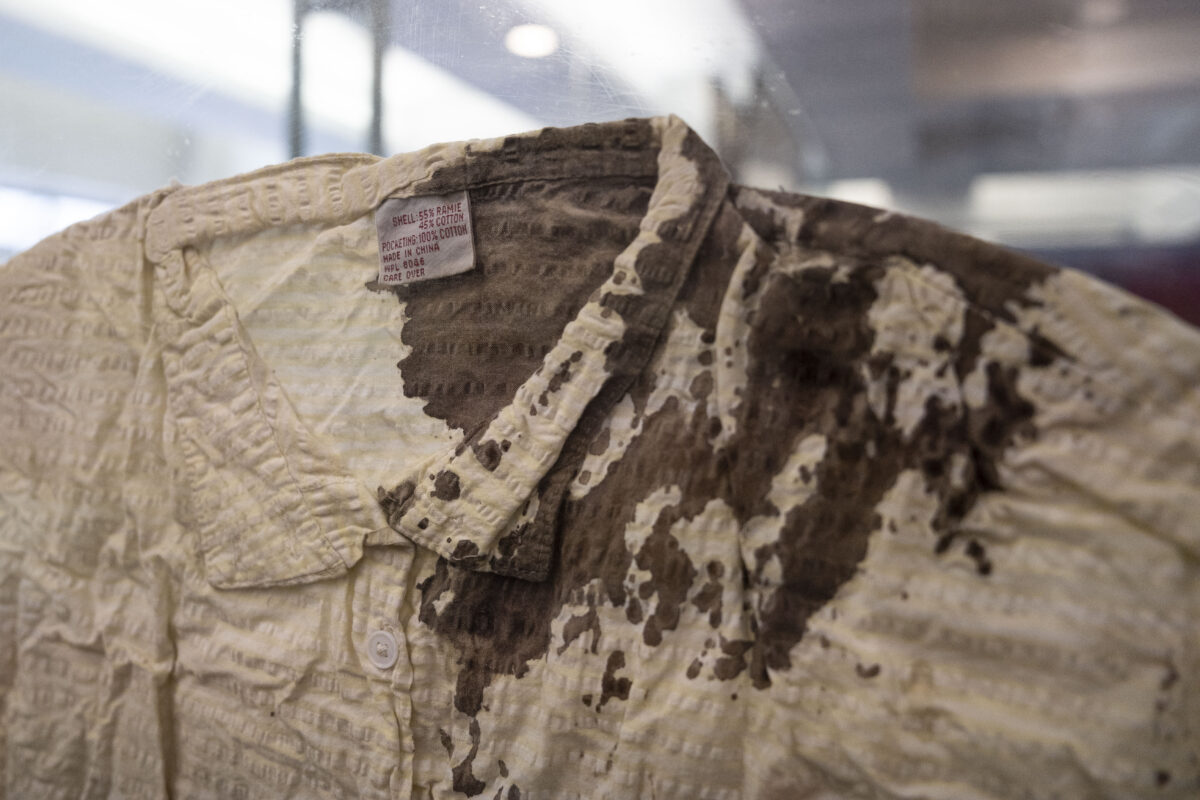
Black banners with slogans popular during the 2019 Hong Kong mass protests against Beijing’s encroachment, along with videos and posters from the movement, are on display in a dedicated room—to showcase the “shared ideals” of people from mainland and Hong Kong, Yu said.
Yu was teaching at Dartmouth College while working on a doctorate in economics at Princeton University when tanks rolled down Tiananmen Square in 1989. For years afterwards, he threw himself into the pro-democracy work, even delaying finishing his PhD paper for more than a decade.
“I think I’m a rather stubborn person,” he said, reflecting on his advocacy work over the past three decades. “Once I decide something should be done, I will keep going at it without much change.”
Hu, while unable to be there for the exhibit’s opening ceremony, said he will definitely visit if he gets to be in New York.
“These are irrefutable evidence of how cruelly the communist party treated the students and citizens,” he said. “The revelation of the true face of the Communist Party.”
Shawn Ma contributed to this report.












































